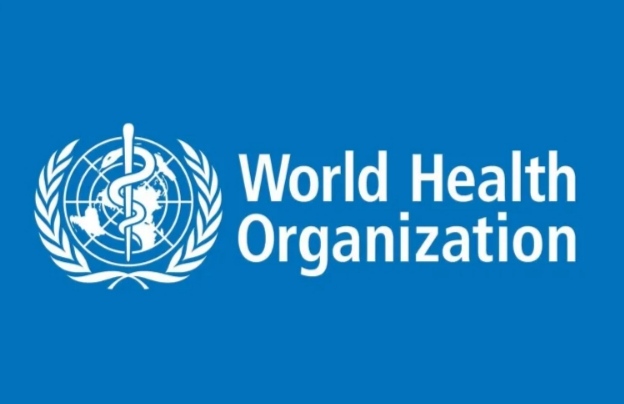Geneva- The World Health Organization (WHO) on Friday classified the new coronavirus variant detected in South Africa as a “variant of concern”, naming it Omicron. The announcement came late on Friday after a closed-door meeting of experts from WHO gathered to assess the variant.
Earlier in the day, WHO had urged countries not to panic and cautioned against “hasty measures”, even as a slew of nations across the world reacted with alarm to the news.
Several nations, particularly those in Europe, started banning flights from South Africa and neighbouring nations.
A day earlier in India, the Union health ministry had directed states to start rigorous screening and testing of all international travellers coming from or transiting through Botswana, South Africa and Hong Kong – the countries that had till then reported cases of the new variant.
As of late Friday night, infections outside of Africa were confirmed in at least three nations – Hong Kong, Israel and Belgium.
Global scientists are still trying to determine whether the new variant — also known as the B.1.1.529 — is more transmissible or more lethal than previous ones, but it does have the most mutations of any strain yet identified.
Susan Hopkins, chief medical adviser to the UK Health Security Agency, told BBC radio the variant has about 30 mutations “that seem relevant” – double the number seen in the highly-transmissible Delta variant.
This has raised concerns across the world, with authorities fearing a wave of infections much worse than what was witnessed during the dreaded Delta wave outbreaks.
New cases in South Africa, where it was first discovered, have grown more than 320% in the past week.
Of particular concern is the situation in Guateng province, where test positivity in a particular region jumped from 1% to over 30% in just three weeks. Sequencing there showed almost all recent samples are of B.1.1.529, out-competing Delta in a way never seen before anywhere in the world.
German biotech company BioNTech, which has developed one of the most widely used Covid-19 vaccines with Pfizer, has begun studying the new variant and expects the first data from laboratory tests about how it interacts with its vaccine within two weeks.
The WHO said it would take weeks to determine how effective vaccines were against the new variant, but the news nevertheless pummelled global stocks amid fears what new bans would do to the global travel industry and already shaky economies. Markets slid heavily across Asia, Europe and then finally in the US where early trading led to a post-Thanksgiving selloff.
In Geneva, the WHO – whose experts gathered on Friday to discuss the variant – cautioned countries not to jump to conclusions and warned against “knee-jerk” travel curbs.
“At this point, implementing travel measures is being cautioned against,” WHO spokesperson Christian Lindmeier said. “The WHO recommends that countries continue to apply a risk-based and scientific approach when implementing (curbs).”
The Africa Centers for Disease Control and Prevention agreed and it “strongly discourages the imposition of travel ban for people originating from countries that have reported this variant,” it said in a statement. It added that “over the duration of this pandemic, we have observed that imposing bans on travellers from countries where a new variant is reported has not yielded a meaningful outcome.”
All those urgings, however, fell on deaf ears.
Early in the day, European Commission president Ursula Von der Leyen proposed to activate an emergency ban for air travel from southern Africa until there’s a clearer understanding of the potential dangers.
Minutes later, the UK became the first European country to ban flights from South Africa and five other southern African countries effective noon on Friday.
Soon enough, travel bans being enacted by countries across Europe and beyond.
Germany said its flight ban could be enacted on Friday night. Spain said airlines coming back from South Africa will only be able to transport citizens home, and travellers will need to go into quarantine for 14 days whether or not they are vaccinated.
France suspended all flights arriving from the southern African region for 48 hours. Italy also banned entry of anyone who has been in these southern nations in the past 14 days. The Netherlands and the Czech Republic are planning similar measures.
Belgium’s government announced the first publicly known case of B.1.1.529 in Europe: an unvaccinated person who returned on November 11 from Egypt via Turkey.
By late Friday night, travel bans of varying degrees had been announced by countries like Saudi Arabia, Brazil, Greece, Morocco, among others.
In Washington, top US infectious disease official Anthony Fauci said no decision had been made on a possible travel ban to the United States. There was no indication that the variant was in the US, and it was unclear whether it was resistant to current vaccines, he told CNN.
Israel imposed a travel ban covering most of Africa as Prime Minister Naftali Bennett said a few cases of the new strain had been reported there.
Local news reported that, according to the health ministry, one of those individuals had received a third shot, or booster, of the Pfizer-BioNTech vaccine two months ago.
“We are currently on the verge of a state of emergency,” Bennett said.
The latest threat in a nearly two-year-long battle against Sars-CoV-2 comes just as the latest wave of infections spirals out of control in countries from Germany to Belgium to Austria. Some parts of Europe are already back in lockdown due to a massive spike in cases in recent weeks




